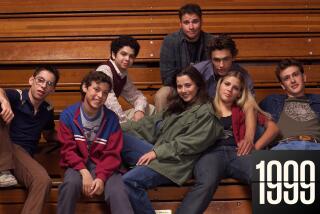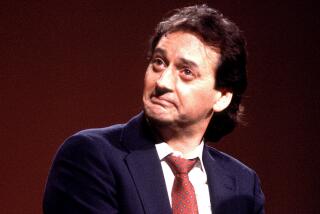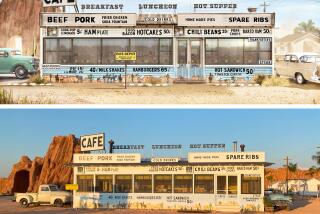Where it all began for Apatow and Anderson
- Share via
The coincidental releases this week of a pair of cult staples -- “Freaks and Geeks” (in a deluxe “yearbook” set) and “Bottle Rocket” (in a Criterion edition) -- make for an intriguing compare-and-contrast exercise. Since these early efforts, Judd Apatow and Wes Anderson have emerged as the twin kingpins of misfit man-child comedy. Along with the various associates and pretenders in their orbit, they now account for a remarkably wide swath of contemporary Hollywood screen humor.
The Apatow school, absorbing lessons learned from John Hughes and the Farrelly brothers, has all but taken over American multiplexes. Most hit comedies these days either actually bear Apatow’s imprint (as producer or writer more often than director) or simply play like his movies (which is to say, they revolve around the travails of underdeveloped young men, are raunchy but sweet, and star someone -- such as Seth Rogen -- best known for being in Apatow movies). Anderson is altogether artier and more introspective, a miniaturist at heart, but his films’ private melancholy and off-kilter aesthetic have taken on more commercial forms in such imitators as “Garden State” and “Napoleon Dynamite.”
“Freaks and Geeks” dates from a period in Apatow’s career when he could still credibly play the underdog. With his friend Paul Feig (who went on to “The Office” and “Arrested Development”), he was the creative force behind the much-eulogized high-school series, which lasted barely a season on NBC in 1999-2000. (Shout Factory’s lavish eight-disc package includes all 18 episodes, plus abundant commentaries and a mock yearbook with photos and essays.) “Bottle Rocket” (1996) was Anderson’s first feature, co-written with his regular co-conspirator Owen Wilson (who also starred). Expanded from a short that was a Sundance hit, the film itself was rejected by the festival and it wasn’t until 1998’s “Rushmore” that Anderson started attracting a sizable cult.
These early works provide a glimpse of their auteurs’ obsessions before themes hardened into formulas and eccentricities into mannerisms. Set in 1980 and teeming with period-specific pop-culture details, “Freaks and Geeks” throws in its lot with McKinley High’s stoner-slacker burnouts (including James Franco and Rogen, reunited in this year’s Apatow-produced “Pineapple Express”) and barely pubescent nerds (the remarkable trio of John Francis Daley, Samm Levine and Martin Starr). Somewhere in between is Linda Cardellini’s Lindsay, the good-girl ex-”mathlete” making the transition from geek to freak (and probably still the most fully developed female character in the Apatow cosmos). The show’s assessment of high school’s deeply tribal culture was unnervingly clear-eyed and its basic conceit -- ceding center stage to the kids who typically end up as comic-relief sidekicks -- was both a stroke of inspiration and an act of generosity.
“Bottle Rocket” also derives its laughs and its poignancy from the idea of the improbable hero. A shaggy-dog crime caper that follows a couple of buddies (Luke and Owen Wilson) as they attempt, with equal parts persistence and incompetence, to act out the outlaw myths in their heads, it remains Anderson’s loosest and breeziest movie (and put the Wilson brothers on the map).
Whether Apatow and Anderson speak for a generation or merely serve a demographic, they are by now brand names, very much at the backlash-prone stage of their career cycles. For detractors, Apatow is a tireless one-man factory of schlubby bromances and feature-length sitcoms, Anderson the poster boy for fastidious whimsy and post-ironic quirk.
But the plainest and most compelling arguments for these auteurs can be found in these early offerings. The hallmarks of their best work are here in embryonic form: the effortless deadpan, the unerring soundtrack cues, and the ability to turn cartoons and stereotypes into three-dimensional figures.
It’s tempting to consider “Freaks and Geeks” and “Bottle Rocket” precocious signs of future greatness, but it may be more accurate to think of them as reminders of the humanism beneath the comic shtick.
--
More to Read
Only good movies
Get the Indie Focus newsletter, Mark Olsen's weekly guide to the world of cinema.
You may occasionally receive promotional content from the Los Angeles Times.










